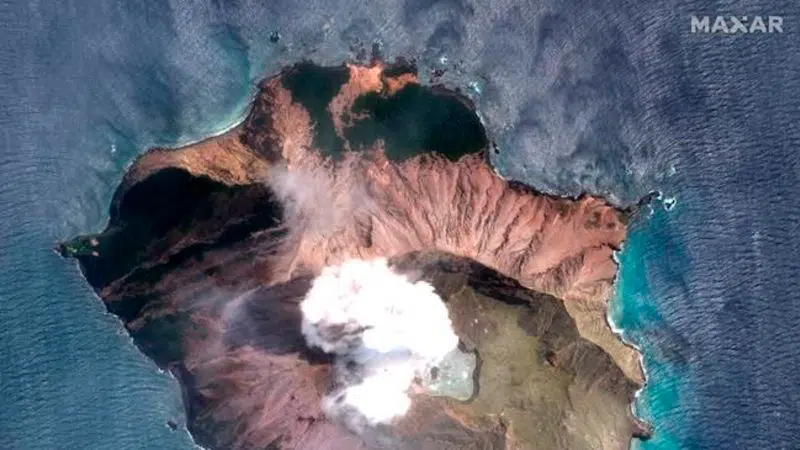
New Zealand trying to recover bodies on volcanic island
WHAKATANE, New Zealand — New Zealand police and military specialists launched a risky operation Friday to recover the bodies of eight victims of a volcanic eruption on an island that has left at least eight others dead.
Just after first light, two helicopters from the New Zealand Defence Force lifted off from the township of Whakatane and travelled 50 kilometres (30 miles) to White Island off New Zealand’s eastern coast.
Eight military specialists wearing protective clothing and using breathing apparatuses landed and are trying to recover the bodies, police said. Scientists have warned that gases on the island after Monday’s eruption are so toxic and corrosive that a single inhalation could be fatal.
Police Deputy Commissioner Mike Clement told reporters Thursday evening that drones had pinpointed six bodies but the location of two others was unknown. He expected the operation to take several hours.

